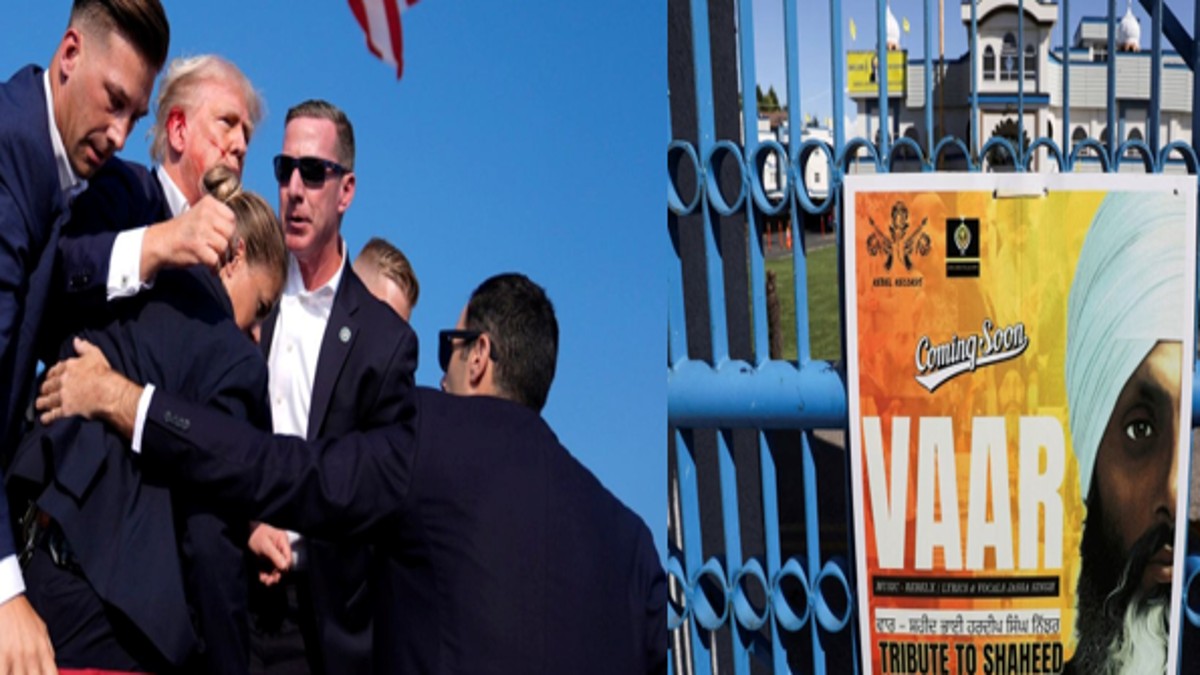The failed assassination attempt on former US President Donald Trump has raised several questions. Already slightly ahead of President Joe Biden in opinion polls, Trump is now several percentage points in front.
If he wins the November presidential election, Trump could turn global politics on its head. He has pledged to end the Russia-Ukraine war on the negotiating table, not the battlefield. Trump will also shift America’s focus from NATO, Europe and the Atlantic to the South Pacific and what he calls the world’s principal global threat: China. Trump will double or triple tariffs on Chinese imports, setting off a new trade war.
Biden concedes that his supporters went too far in targeting Trump, repeatedly comparing him to Adolf Hitler. Biden had himself asked people to “put a bullseye on Trump”.
Realising how badly the interpretation of those words will play out in the ongoing presidential campaign, Biden apologised. During a television interview on NBC shortly after the Trump shooting, Biden said: “It was a mistake to use the word bullseye. But I didn’t say crosshairs. (By bullseye) I meant focus on him. Focus on what he’s doing.”
Toxic politics is not confined to the US. Poison has seeped into India’s political ecosystem. Prime Minister Narendra Modi remains the principal target of verbal attacks by a rage-filled Opposition.
Impact Shorts
More ShortsWhen the 18th Lok Sabha convened for the first time after the 2024 General Election, newly appointed Leader of the Opposition (LoP) Rahul Gandhi revealed what he had meant when he said years ago that “power is poison”.
In his opening speech, Gandhi raged against Hinduism before claiming that his verbal assault was on the BJP/RSS who he said did not represent Hindus. More toxic invective followed. Much of it was expunged by the Speaker.
Congress president Mallikarjun Kharge was quick to match Gandhi, invective for invective. Other Opposition parties, especially the Trinamool Congress (TMC), Aam Aadmi Party (AAP) and DMK have continued to relentlessly attack Modi. They do not attack Finance Minister Nirmala Sitharaman, Defence Minister Rajnath Singh or even Home Minister Amit Shah. The poison is reserved for Modi.
When the Lok Sabha reconvenes for the Budget session, will the Indian Opposition heed Biden’s advice to his Democratic party members to “lower the temperature” after the assassination attempt on Trump?
Fuelling hate
The danger is that hate can embolden anti-India forces. Soon after the assassination attempt on Trump, a gathering of Sikh extremists in Surrey, Canada, issued this public threat: “We killed Indira Gandhi. We will also kill Modi.”
Security for Modi has been tightened but there is no defence against a determined lone wolf attacker. Road shows in open vehicles are especially vulnerable.
In the recent British General Election, with the result a foregone conclusion, the most violent attack against a candidate was a milkshake thrown at Nigel Farage, head of the Reform UK party. But that’s misleading. Deadly political violence has dogged British politics. Labour MP Jo Cox was shot and then stabbed to death by a neo-Nazi white supremacist during a visit to her constituency in June 2016.
The Conservative MP Sir David Amess was also stabbed and killed in October 2021 in his constituency by an Islamist extremist Ali Harbi Ali, a British citizen of Somalian origin. Ali stabbed Amess multiple times in the chest, leading to his death.
The two violent attacks on sitting British MPs have forced several British politicians to withdraw from public life. During the July 4 UK General Election, dozens of serving MPs chose not to stand for political office. Many cited the growing danger of street violence in British politics.
In the US and India, security is a growing concern. Biden’s plea to “lower the temperature” may work. Democrats know that even verbal violence directed against Trump will enhance his appeal as a victim of America’s Left.
The Vance effect
The appointment of JD Vance as his running mate reveals Trump’s strategy in the months leading up to the November presidential election. Vance represents the archetypical poor rural Ohio boy who fought his way up the socio-economic ladder occupied by elite, college-educated Democrats who dominate “blue” states across the east and west coasts of America, from New York to California.
Trump may be wealthy but his background isn’t that different from Vance. Trump’s mother Mary was an immigrant from Scotland who made a false declaration on her entry document to the US. A domestic help in Scotland, Mary sailed to America on a short-term tourist application, stayed on, and married Trump’s father Fred, a wealthy real estate developer.
But Trump’s grandfather Federick was relatively poor. Born in Germany, he emigrated to the US in 1885, aged 16. Donald Trump was born rich but both his mother and paternal grandfather were poor immigrants.
When Trump condemns poor immigrants streaming into the US from Mexico and South America, the irony doesn’t escape him. But Vance’s rags-to-riches story, with pit stops at Yale Law School and Silicon Valley, along with a wife Usha Chilukuri, born to Indian immigrants, fits well into Trump’s anti-elite political positioning.
In India, Modi has sought a similar positioning against established dynasts who dominate the 25 parties in the Opposition bloc: Rahul Gandhi, Akhilesh Yadav, Tejashwi Yadav, Stalin, Omar Abdullah, Sharad Pawar and Uddhav Thackeray.
If the Opposition wants to win the forthcoming Maharashtra and Haryana assembly elections, it should focus on issues. Attacking political opponents often suits the incumbent. The Opposition needs to offer a serious economic policy alternative in place of invective and shoot-and-scoot allegations. Poison in politics can damage the attacker more than the attacked.
The writer is an editor, author and publisher. Views expressed in the above piece are personal and solely those of the author. They do not necessarily reflect Firstpost’s views.
)